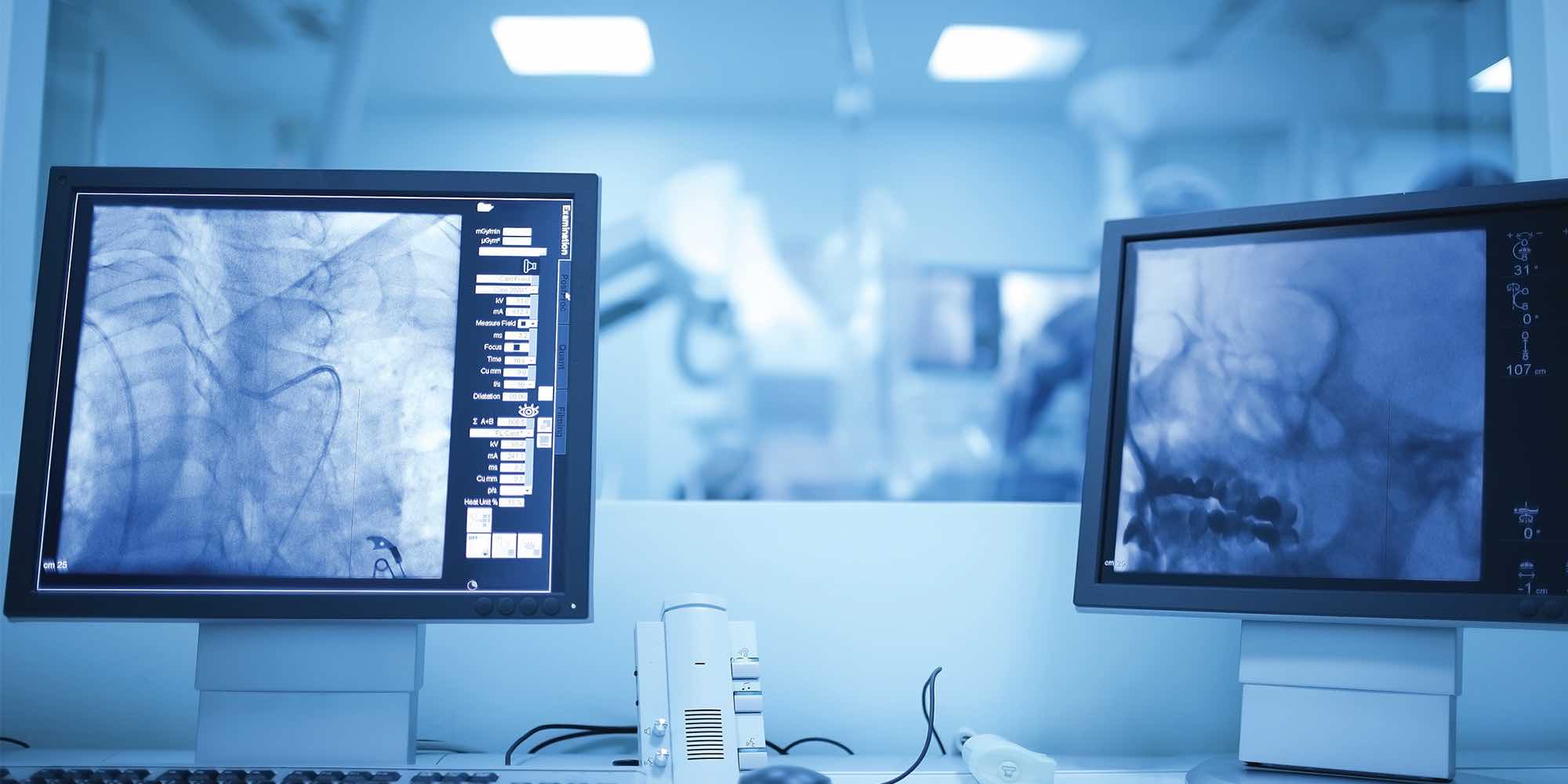Coronary Angiogram
If there is a potential blockage in one of your heart’s blood vessels, a coronary angiogram helps us assess it. This sophisticated test enables our heart doctors to quickly pinpoint the source of your symptoms so you receive timely, appropriate treatment.
What is a Coronary Angiogram?
This procedure uses X-ray imaging to assess blood flow in the arteries supplying blood to the heart. Instead of making incisions, we use long thin tubes (catheters) to access the heart. A coronary angiogram helps us determine the location and severity of blockages and how best to treat them. In some cases, we deliver therapies during the same procedure.
Why Choose St. Peter's Health Partners for Your Coronary Angiogram Assessment?
You receive care from cardiologists who completed additional training through fellowships in catheter-based techniques. They work alongside other St. Peter’s Health Partners heart specialists, including surgeons and arrhythmia experts, to tailor services to your needs. This level of care is not widely available in the Capital Region.
Looking For Test Results?
View test results once they are uploaded by your doctor.
Our Coronary Angiogram Program Includes:
- Emergency Access: A coronary angiogram is often part of the lifesaving care we deliver to people with heart attack symptoms. Our experience performing a high volume of angiograms leads to higher success rates, and complications are extremely rare. Angiograms are available on an emergency basis any time, day or night, 365 days a year.
- Specialized Facilities: We often perform coronary angiograms in our hybrid operating room. The room contains surgical equipment and advanced imaging technology for catheter procedures. If you have a heart defect or other conditions that increase the risk of complications, surgeons are available to step in if necessary.
- Comprehensive Treatment: We offer more of the services you need to reclaim wellness. If you are treated for a blocked artery during an angiogram, your doctor may recommend outpatient cardiopulmonary rehabilitation. Our program can help you maximize your heart health.
Who are Coronary Angiograms For?
A coronary angiogram may be necessary when cardiac imaging tests show signs of an issue and doctors need additional information.
You May Benefit from an Angiogram if You Have:
- Signs of Advanced Coronary Artery Disease including chest pain
- History of heart defects or new symptoms, including abnormal heartbeat
- Heart valve disease with worsening symptoms, such as lightheadedness or fainting
Coronary Angiogram: What to Expect
If a Coronary Angiogram is Right for You, Here’s What to Expect:
- You will receive medication to help you relax. You might fall asleep.
- We make a small incision in an artery in the groin or wrist, insert a catheter, and advance it through the artery to your heart. You will not experience the sensation of the catheter moving through your blood vessel.
- Once we reach the heart, we inject a special dye that makes the blood vessels visible on an X-ray. You may experience sudden warmth or flushing during this step.
- The heart expert takes a series of X-rays to examine blood flow.
- Depending on X-ray results, we may perform additional tests or deliver treatments. These include:
- Other imaging tests: We may perform other types of cardiac catheterization imaging. These tests, including CT angiography, enable us to assess the fine details of your heart’s structure and functioning.
- Angioplasty and stenting: If an artery is blocked, we use a balloon to open it. Inserting a hollow mesh tube (stent) helps the blood vessel stay open. Learn more about angioplasty (percutaneous coronary intervention).
- When the procedure is complete, we remove the catheter. You may need to stay in the hospital overnight.
Take the Next Step
Call 1-800-HEART-76 (1-800-432-7876) to find a heart specialist or learn more about cardiovascular care at St. Peter’s Health Partners.



